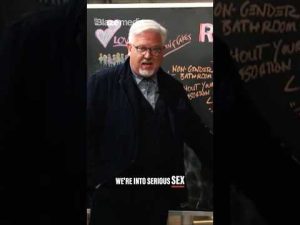In the bustling, sometimes tumultuous streets of South Chicago, a long-standing crisis seems to have accepted residency. For decades, crime has been a recurring issue in this vibrant city, a situation that has sparked concern among citizens and leaders alike. As President Trump throws his hat into the ring with bold claims and controversial tweets, discussions about reform and safety have never been more urgent.
Rewinding to a classic song of 1969, “In the Ghetto” by Elvis Presley, paints a heart-wrenching picture. The lyrics describe the struggles and heartbreaking realities faced by those in impoverished communities. A baby is born into a cycle of poverty, and with each passing verse, the grim narrative unfolds—a stark reminder that the yearning for change is as old as the city itself. Yet, despite the looming shadows of crime and violence, some folks seem to think that nothing can change. Well, President Trump clearly isn’t one of those people. His recent expressions on Twitter indicate he’s ready to take action, and at least some folks are cheering him on.
In an unexpected twist, Trump went so far as to rebrand the Department of Defense to the “Department of War,” signaling his no-nonsense approach to tackling the issues that come with troubled urban areas like Chicago. While his tweets may send shockwaves through liberal circles, they signal a readiness to bring the hammer down on crime rather than politely tiptoe around it. This kind of straight talk resonates with many who believe that decisive actions rather than empty promises are what’s needed in cities that have been left behind for too long.
If history teaches anything, it’s that past administrations have occasionally been knee-deep in idealistic wars against poverty, drugs, and crime. Unfortunately, those campaigns often fell flat, leading to more bureaucratic paperwork than real-world change. Political grandstanding might make for good headlines but rarely leads to effective solutions. Trump’s challenge to the status quo is stirring things up, and many believe it’s high time someone tried a new approach instead of recycling the same tired strategies.
However, the response to Trump’s provocations has been mixed. Critics, including local leaders, worry that labeling efforts to combat crime as a “war” is not only incendiary but could invoke fear rather than foster unity in a community. Words like “threat” and “disgusting” came to the forefront of discussions as opponents voiced their concerns over potential militarization in American cities. Ultimately, while many Democrats and media pundits express indignation, regular citizens are left wondering: where’s the effective plan that genuinely puts their safety first?
In a landscape filled with political posturing, one thing remains clear: the fight against crime and the pursuit of a safe, vibrant community must continue. The struggles of the past illustrate that simply speaking the right words or throwing money at problems does not resolve issues. It takes concerted effort, innovation, and perhaps a little courage to ignite real change. As the city awaits its next chapter, will Trump’s bold declarations lead to unprecedented action, or will they merely fade away like the notes of a long-forgotten song? Only time will tell, but for the citizens of Chicago and beyond, the need for progress and safety is more pressing than ever.







